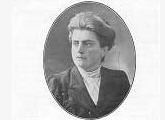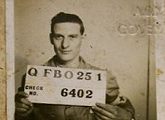Robert Owen



Images copyright © the Bishopsgate Foundation and Institute (left)
and copyright © National Co-operative Archive.
This year is the 150th anniversary of the death of Robert Owen (1771-1858), social reformer and philanthropist. Owen wished to improve conditions for factory workers and promote an ideal way of living. Born in Newtown, Wales, Owen worked in factories in Lincolnshire and London after leaving school at the age of ten. He was also an avid reader from an early age and believed strongly in the importance of education for the formation of the character. By 1785, Owen was in Manchester, at this time on the verge of industrial revolution, as well as a centre for philanthropic debate. Owen set up a spinning business that lasted for just one year. In 1799 Owen married Caroline Dale, daughter of David Dale, who owned the New Lanark Cotton Mills in Scotland, of which Owen became the manager. The community he went on to establish as a result became a model for good working conditions and promoted Owen’s belief in the importance of education by setting up a school and lecture halls there. Owen remained at New Lanark for many years, while continuing to promote his beliefs and ideas to a wider audience through lectures and writings. In 1825 Owen and his son, Robert Dale Owen, travelled to America to set up a community, New Harmony, Indiana that he hoped would be as successful as New Lanark. However, the community did not flourish and Owen returned to England in 1829. After his return, he became interested in aspects of co-operation and labour exchanges. To this day Owen remains an extremely influential figure within the co operative movement worldwide. Right up to the end of his life, Owen continued to write and lecture on social issues. He died aged 87 while visiting Newtown, the place of his birth.
The National Co-operative Archive holds Owen’s correspondence collection, which contains over 3000 letters as well as a large collection of books, journals and pamphlets written by him.
- Sophie Stewart, Assistant Archivist, National Co-operative Archive.
This month we highlight the archival descriptions for the papers of Robert Owen aned related collections. There are also links to selected websites and a brief bibliography.









Images copyright © National Co-operative Archive.
Collection descriptions
- Robert Owen: correspondence and papers 1821-1858 (National Co-operative Archive)
- Robert Owen: draft plans and reports on "relieving public distress" (University of London Library)
- George Jacob Holyoake (1817-1906): writer, journal editor and publisher, outspoken reformer, member of the Birmingham Chartists, and supporter of non-violent protest; the collection includes a large number of pamphlets written by Holyoake on Owen’s activities and ideas
- William Pare (1805-1873): governor of Robert Owen's community at Queenswood, Hampshire, from 1842-1844.
- Paul Derrick (1916-1996): co-operator and Christian socialist; papers include material relating to the Robert Owen Bicentenary Committee.
- Charles Bradlaugh (1833-1891): politician and freethinker, admirer of Robert Owen.
- Howell Ephemera Collection: politician and writer George Howell (1833-1910) collected material for his own research into the Victorian era; Howell's library contains many original books and pamphlets by Owen
- Raphael Samuel (1934-1996): Marxist historian with a special interest in Robert Owen ..
Related links
With thanks to Stefan Dickers, Archivist, Bishopsgate Institute
- Holyoake, George Jacob (1817-1906) co-operator and secularist: Bishopsgate Institute holds an extensive archive of George Jacob Holyoake's papers, including diaries, manuscripts, ephemera and material relating to his early work as an Owenite social missionary (Bishopsgate Institute, London).
- "Press cuttings relating to Robert Owen" (John Burns Papers), and "Robert Owen, New Lanark and education" (Wilderspin additonal), held at the University of London Library [ search the University of London catalogue ]
- Robert Owen Society: family of Co-operative and Social Enterprise organisations and registered charity.
- Robert Owen Memorial Museum: the only museum specifically devoted to Robert Owen (Newtown, Powys)
- Robert Owen 1771-1858: introduction and collection listing (National Co-operative Archive, Manchester)
- South Wales Coalfield Collection: holds a number of books and pamphlets about Robert Owen, the Co-operative Movement and Trade Unions (University of Swansea)
- Working Class Movement Library: freely accessible library with a collection of essays, tracts, lectures, reports and periodicals (Salford)
- New Lanark Conservation Trust: restored 18th century cotton mill village, with visitor centre; UNESCO World Heritage Site (Lanarkshire, Scotland)
- Historic New Harmony: model comunity attempted in the United States by Robert Owen, 1825-1827; visitor centre and Center for Communal Studies (Indiana)
- Mid-Wales Innovators: Robert Owen: part of the Icons of Wales 'Hall of Fame' (BBC website)
- National Portrait Gallery: Robert Owen: four portraits and life mask, 1829-1858 (National Portrait Gallery, London)
Suggested reading
Links are provided to records on Copac for these items. Copac is the free, web based national union catalogue, containing the holdings of many of the major university and National Libraries in UK and Ireland plus a number of special libraries. For more information about accessing items see the FAQs on the Copac website.
- Gregory Claeys (ed.) Selected works of Robert Owen. Records on Copac
- Asa Briggs Robert Owen in Retrospect. Records on Copac
- G. D. H. Cole The life of Robert Owen. Records on Copac
- Ian Donnachie Robert Owen: social visionary. Records on Copac.
- W. L. Herd New Lanark. Records on Copac
- David J. McLaren David Dale of New Lanark: a bright luminary to Scotland. Records on Copac
- Subrata Mukherjee and Sushila Ramaswamy (eds.) Robert Owen (1771-1858). Records on Copac
- C. Tsuzuki (ed.) Robert Owen and the World of Co-operation. Records on Copac
You can receive regular updates on our special features by joining our mailing list.





